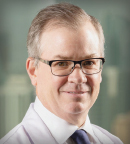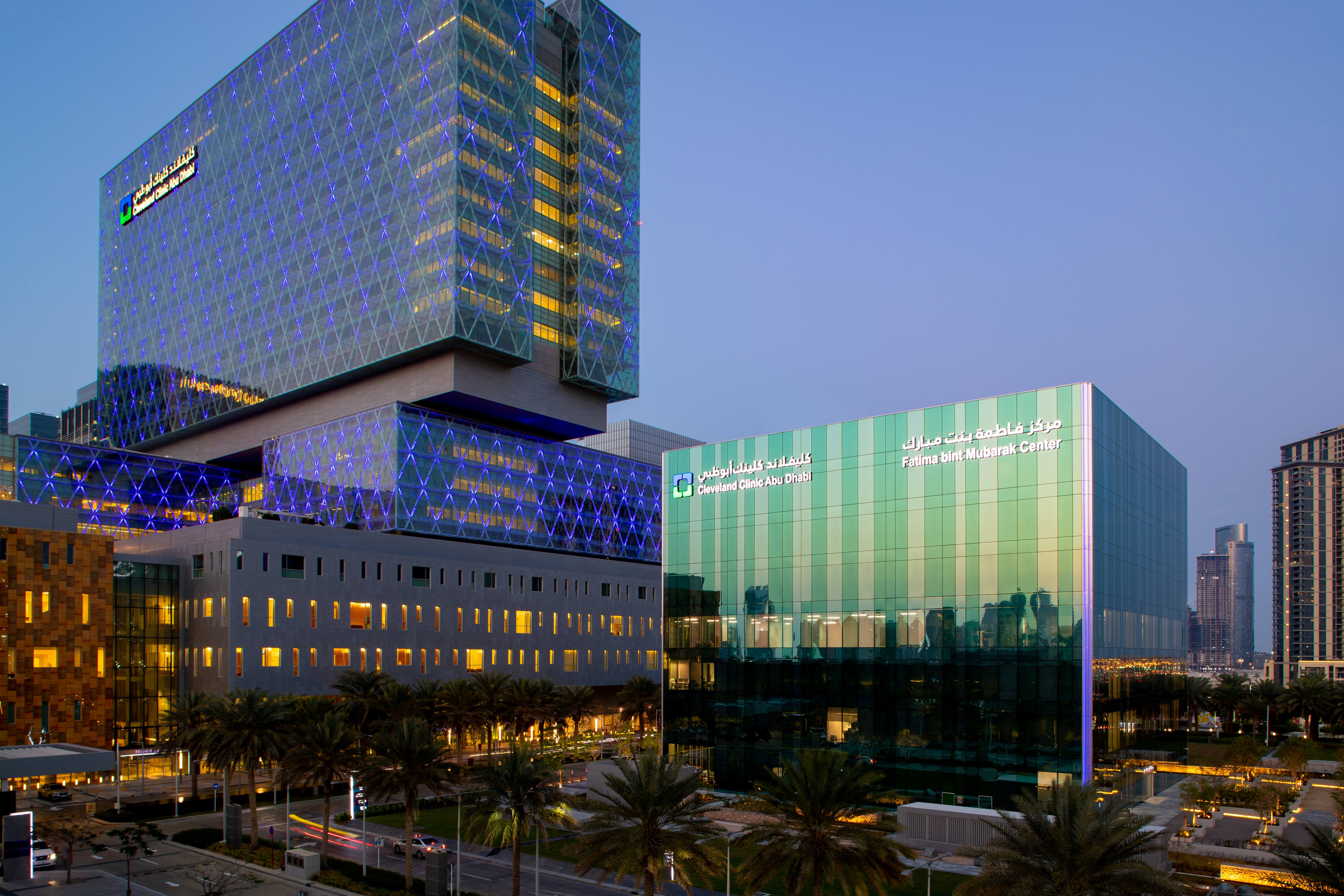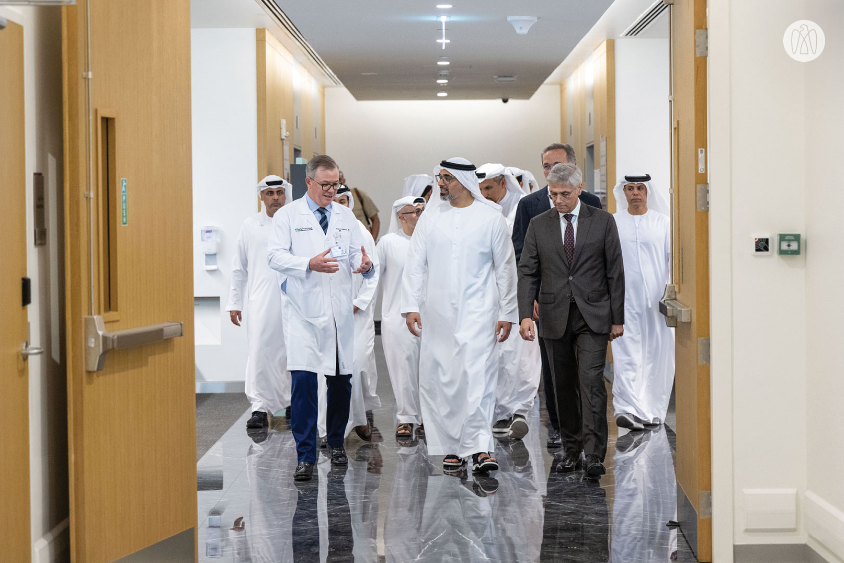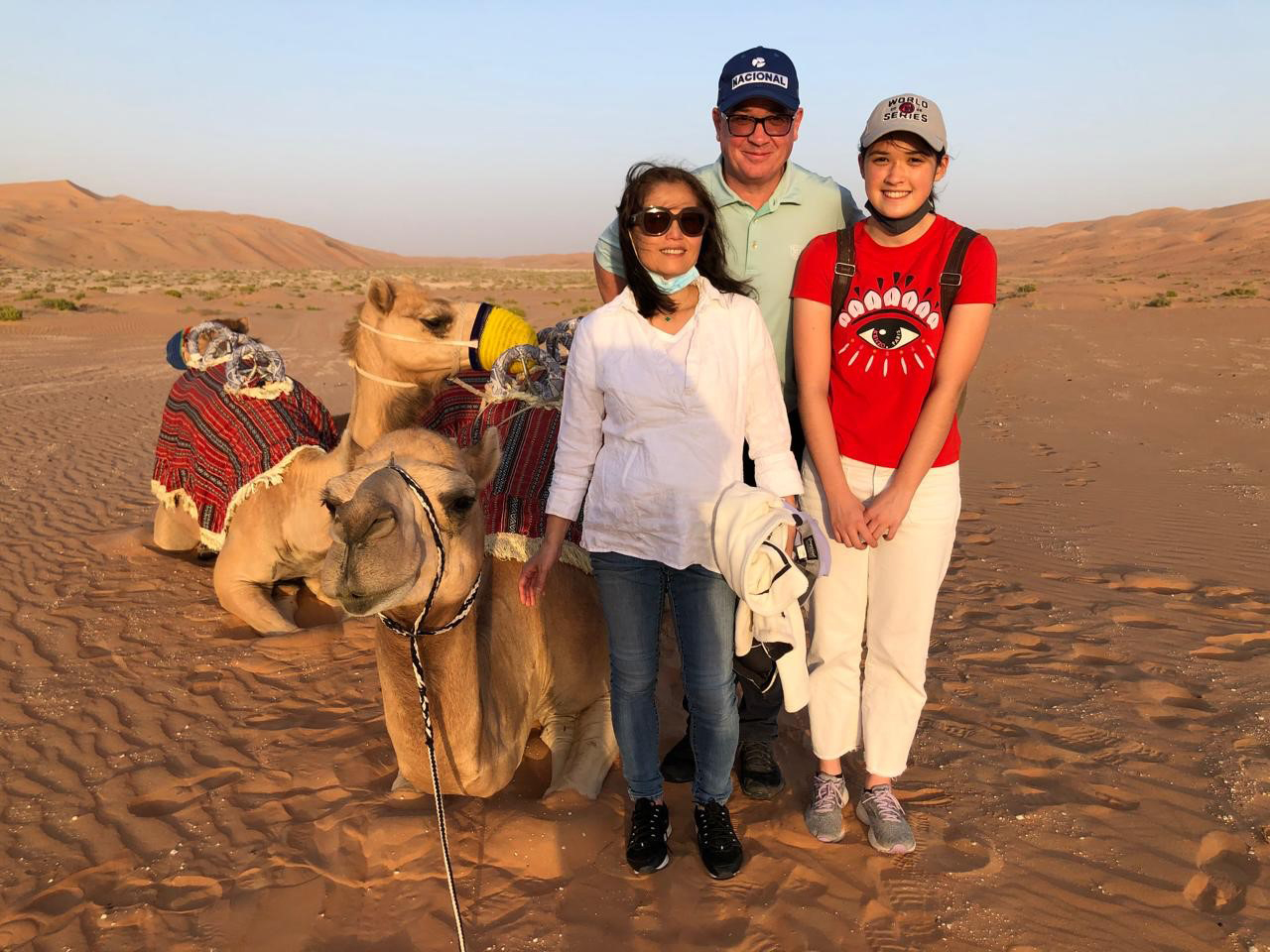In this installment of The ASCO Post’s Living a Full Life series, Guest Editor Jame Abraham, MD, FACP, spoke with Stephen R. Grobmyer, MD, FACS, about his clinical and research career in oncology, the challenges and rewards of moving to Abu Dhabi and building a state-of-the-art cancer center, and the joys of learning a new language and about a different culture. Here are excerpts from their wide-ranging interview, which has been edited for length and clarity.
Stephen R. Grobmyer, MD, FACS

- On working in Abu Dhabi: “Working here has been a fabulous and satisfying experience. We have built a state-of-the art cancer center that provides excellent multidisciplinary care for patients and are continuing to change the dialogue on how cancer care is provided in the Arab Gulf region, particularly in the United Arab Emirates (UAE).”
- On lessons learned: “We’ve learned you just can’t carbon copy assumptions about the causes of cancer and the delivery of care from the United States or Europe and bring them to this region. We have an obligation to study the problems of the patients we serve in the UAE and are definitely seeing differences in patterns of disease.”
- On a career highlight: “One of the greatest opportunities of my career came about 4 years ago, when I was asked to be part of the leading team of the Emirati Genome Program, a national study that is exploring the genetic makeup of Emirati citizens with the goals of preventing diseases such as cancer and developing personalized treatment.”
The desire to become a physician took hold when Dr. Grobmyer was a young child growing up in Memphis; he would accompany his father, Albert J. Grobmyer III, a general surgeon with a focus in breast cancer, on his weekend rounds and witnessed his father’s profound commitment to his patients. But Dr. Grobmyer’s exposure to the field of medicine wasn’t limited to his father’s practice. Medicine was also the family business. Dr. Grobmyer’s paternal grandfather was a general surgeon, his maternal grandfather was a pulmonologist, and an uncle was an orthopedic surgeon.
“There was never really any question that going to medical school and becoming a physician is what I wanted to do,” said Dr. Grobmyer.
Professional Training
After earning his medical degree from Southwestern Medical School in Dallas, Dr. Grobmyer completed his residency in general surgery at New York Hospital–Cornell Medical Center (now NewYork–Presbyterian Hospital) in New York City. Then he completed a fellowship in surgical oncology at Memorial Sloan Kettering Cancer Center (MSK), an experience he called transformative.
“My interest in oncology began during my residency at New York Hospital–Cornell Medical Center, where I was exposed to world-class oncologists and surgical oncologists. They included John M. Daly, MD, who was Chairman of the Department of Surgery, and Monica Bertagnolli, MD, FACS, FASCO, who was on the faculty, later became President of ASCO (2018–2019), then Director of the National Cancer Institute in 2022, and Director of the National Institutes of Health from 2023 to 2025,” said Dr. Grobmyer. [Dr. Bertagnolli is now on the Board of Directors for the Friends of Cancer Research.] “My interest in oncology was solidified during my fellowship in surgical oncology at MSK, where I had great mentors, including Sir Murray F. Brennan, GNZM, MD, FACS; Daniel G. Coit, MD, FACS; and Hiram (Chip) S. Cody III, MD, FACS.”
Guest Editor

Jame Abraham, MD, FACP
Marking a Stellar Rise in Oncology
After completing his fellowship training at MSK, Dr. Grobmyer served in several leadership roles at the University of Florida College of Medicine in Gainesville, including Assistant Professor of Surgical Oncology; Chief of the Breast, Melanoma, and Sarcoma Service; and the Edward M. Copeland III Chair in Surgical Oncology. In 2012, Dr. Grobmyer was named Section Head of Surgical Oncology and Director of the Breast Cancer Center at the Cleveland Clinic in Ohio. He later served as Professor of Surgery at Cleveland Clinic Lerner College of Medicine of Case Western Reserve University; Co-Director of the Cleveland Clinic Comprehensive Breast Cancer Program; and the Zapis Family Endowed Chair in Breast Cancer Research.
A participant in the first graduating class of ASCO’s Leadership Development Program, in 2009–2010 Dr. Grobmyer is internationally recognized as a global expert in breast cancer research, surgery, and treatment. In acknowledgment of his research accomplishments in this field, he has received numerous awards, including the Lester Dragstedt Physician Scientist Award; the Society of Surgical Oncology Clinical Investigator Award; and the American College of Surgeons Japan Traveling Fellowship.
Making the Move to Abu Dhabi
Dr. Abraham: You have been an amazing leader at the Cleveland Clinic for more than 10 years, and I’ve been privileged to work with you. Please talk about your tenure at the center and your move to Abu Dhabi, in 2019, to lead the Oncology Institute at Cleveland Clinic Abu Dhabi.

he Cleveland Clinic Abu Dhabi and the Fatima bint Mubarak Center in Abu Dhabi in the United Arab Emirates opened in March 2023 and provided care to more than 3,000 patients with cancer in its inaugural year. The center provides multidisciplinary cancer care from screening and diagnostic testing to advanced radiation treatments and precision cellular therapies in the Arab Gulf region.
Dr. Grobmyer: Moving to Cleveland Clinic from the University of Florida College of Medicine was an eye-opener. What has impressed me most about working at the Cleveland Clinic is the direct interaction faculty members from different disciplines have with each other on a regular basis.
When I first arrived there, I had a patient with breast cancer who also had a complicated cardiac problem, and here I was at the best heart hospital in the world. I was encouraged by my peers to call a renowned attending cardiologist at the hospital who couldn’t have been more helpful. And that taught me what a special place the Cleveland Clinic is. People at the hospital are really working together as a team to improve patient outcomes, no matter the disease.
I was also fortunate to have many role models, including heart surgeon Delos Marshall “Toby” Cosgrove, MD, who served as President and Chief Executive Officer of the Cleveland Clinic from 2004 to 2017; and Tom Mihaljevic, MD, now current Chief Executive Officer of the hospital.
In 2018, there was a discussion about setting up a cancer center in Abu Dhabi. After meeting with the leadership of Cleveland Clinic Abu Dhabi, and talking with my family, I made the decision to move to Abu Dhabi, the capital city of the United Arab Emirates (UAE), the following year.
From 2019 to 2023, we had to begin and complete construction on a building and recruit a great clinical faculty and administrative staff to work with us here. His Highness Sheikh Khaled bin Mohamed bin Zayed Al Nahyan, Crown Prince of Abu Dhabi and Chairman of the Abu Dhabi Executive Council, officially opened the Fatima bint Mubarak Center at Cleveland Clinic Abu Dhabi in March 2023.
Working here has been a fabulous and satisfying experience. We have built a state-of-the art cancer center that provides excellent multidisciplinary care for patients.
Translating Cancer Care to Other Country Settings
Dr. Abraham: What are the biggest lessons you’ve learned from this experience, and what do you consider among your greatest career accomplishments?
Dr. Grobmyer: There are several areas that have left a lasting impression. When we first came to Abu Dhabi, instead of assuming the patient support services we needed would be identical to those found in most cancer centers in the United States, we did our homework and learned what support services patients in this country need.

Dr. Stephen Grobmyer (Left) talks with H.H. Khaled bin Mohamed bin Zayed Al Nahyan, Crown Prince of Abu Dhabi (Center), during the inauguration of the Cleveland Clinic Abu Dhabi and the Fatima bint Mubarak Center.
Another lesson we learned is that families are very involved in the decision-making of their family member’s cancer care. And that took some adjustment. In the United States, usually there are just nuclear family members involved in the patient’s care. Here, we are dealing with large groups of family members.
We have also observed how palliative care, which is such an important component of cancer care in the United States, is underused and underrecognized as a specialty in the Arab Gulf region and throughout the Middle East. So, we’ve started a palliative care program at our cancer center. And we’re having a lot of success in improving the quality of life of patients with advanced cancer, as well as improving the overall supportive care of patients with cancer.
Finally, we’ve learned that you just can’t carbon copy assumptions about the causes of cancer and the delivery of care from the United States or Europe and bring them to this region. We have an obligation to study the problems of the patients we serve in the UAE and are definitely seeing differences in patterns of disease, which have led us to begin investigations into how the development of cancer may be different here than in Western countries. For example, a quarter of our patients with breast cancer are younger than age 40,1 which is significantly different from the median age at diagnosis of American women, which is 62.2
Research and development of clinical trials have been a main focus here. Clinical trials have been underrepresented in this region, and we are working to change that. We are also interested in learning how to drive improvements in care delivery and in cancer prevention.
One of the greatest opportunities of my career came about 4 years ago, when I was asked to be part of the leading team of the Emirati Genome Program, a national study that is exploring the genetic makeup of Emirati citizens with the goals of preventing diseases such as cancer and developing personalized treatment. So far, we have used cutting-edge whole-genome sequencing and artificial intelligence technologies to generate genomic data on 600,000 Emiratis, which we are now using for the provision of clinical care.
The improvements in the cancer care we are able to provide for patients are rewarding to me and to the members of our staff who have moved to Abu Dhabi. I know we are having a big impact not only on the patient care we provide, but also on the dialogue on how cancer care should be provided in the region. This is among the most satisfying aspects of the work we’ve accomplished here.
Adjusting to a New Culture
Dr. Abraham: Please talk about your family and the impact the move to Abu Dhabi is having on their lives.
Dr. Grobmyer: I met my wife, Tonianne, in New York City in 1999, when she was a Physician Assistant in the Cardiac Service at New York Hospital–Cornell Medical Center, and we were married in 2001. She continued to work and support our family while also helping to raise our only child, Elizabeth, who is now a junior at Fordham University in New York City.
Together, we have enjoyed many life adventures from having moved around to a lot of different cities in the United States and, of course, our major move to Abu Dhabi. It has been a fabulous journey for our family. Obviously, there are some downsides, especially living far away from our immediate families. But the rewards of being exposed to new cultures, learning about other parts of the world, and facing the challenge of building a cancer center from the ground up cannot be overestimated.

Dr. Grobmyer with his wife, Tonianne (Left), and daughter, Elizabeth (Right), on a visit to the Empty Quarter Desert in the United Arab Emirates.
My daughter was in 10th grade when we moved here, and my wife and I had a lot of trepidation about how she would adjust to a completely different culture and lifestyle. But many younger people have a greater comfort level with exposure to new situations than older adults, and I think for her, the experience of living in Abu Dhabi has been particularly rewarding.
Making Time to Relax and Have Fun
Dr. Abraham: We’ve spent so much time talking about your career. What do you do outside of work for fun?
Dr. Grobmyer: That is a great question. Tonianne and I began taking lessons in Arabic 4 years ago. It’s not so easy to learn a new language, especially one as challenging as Arabic, when you’re in your 50s, but it’s a very beautiful language, and it’s helped me learn about the wonderful Islamic culture and religion. Most importantly, speaking in the native language of my patients is crucial to my being able to connect with them one to one rather than relying on translators. They appreciate the effort it takes to speak their language, and it helps bring us closer together.
I also play golf, which is important to me because I’ve made so many good friends on the golf course. It’s also a great way to relax. My wife and I also enjoy traveling, and living in this region gives us direct access to countries we likely never would have visited if we still lived in the United States. For example, we’ve been to India, where we visited the Taj Mahal; Baku, the capital of Azerbaijan; Jordan; and Singapore, among others, and it’s been a wonderful experience.
Living and working in Abu Dhabi has been an extraordinary experience for my family and me, one that I’m so grateful to have had. Each day brings new challenges and opportunities to improve the lives of patients with cancer. I couldn’t ask for a more rewarding career and life.
DISCLOSURE: Dr. Grobmyer reported no conflicts of interest.
REFERENCES
1. Iskanderian RR, Matalkah A, Abdoh A, et al: Clinical and pathological characteristics of breast cancer among Emirati National patients. Gulf J Oncolog 1:25-29, 2024.
2. American Cancer Society: Key statistics for breast cancer. Available at www.cancer.org/cancer/types/breast-cancer/about/how-common-is-breast-cancer.html#:~:text=Breast%20cancer%20mainly%20occurs%20in,cancer%20are%20younger%20than%2045. Accessed March 19, 2025.

